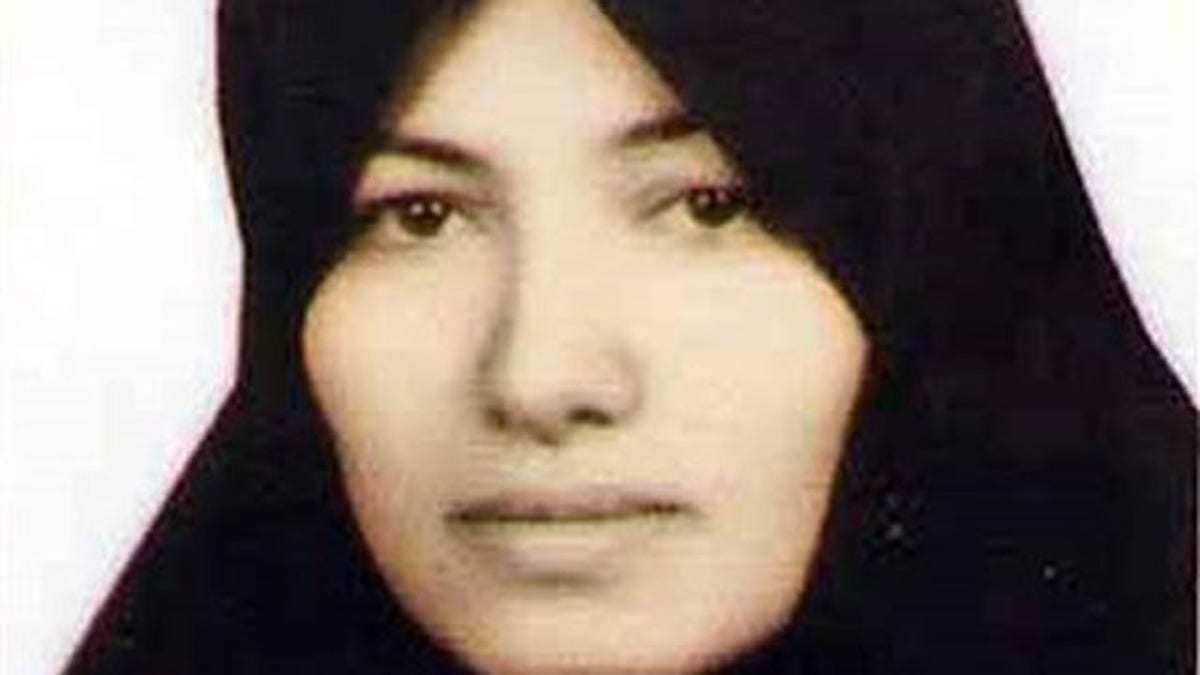
This undated image made available by Amnesty International in London shows Sakineh Mohammadi Ashtiani, a mother of two who had faced stoning to death in Iran on charges of adultery. (AP/Amnesty International)
Iran has backed down over plans to stone to death a woman charged with adultery after an international outcry, but that doesn't mean she doesn't face execution by another means, Sky News reported.
The Islamic republic's London embassy said in a statement that "according to information from the relevant judicial authorities in Iran" Sakineh Mohammadi Ashtiani "will not be executed by stoning".
However, there are still fears that Ashtiani, a mother-of-two, could be put to death by other means after she was found guilty of an affair while she was married.
Her lawyer Mohammed Mostafaei told The Times: "This is a positive development but nothing is clear yet. There have been cases in Iran of stonings being changed to hangings. We have to wait and see what happens."
His client, 43, has already received 99 lashes in mid-2006 after she was convicted of an "illicit relationship" with two men after her husband's death, according to Human Rights Watch.
Later that year she was put on trial again for "adultery while being married", during which Ms Ashtiani said she was forced to make a confession under duress.
In 2007, Iran's Supreme Court confirmed her execution and the woman has since exhausted all her appeals. She is currently imprisoned in the city of Tabriz.
Ms Ashtiani's 22-year-old son Sajjad has sent an open letter to former political activist Mina Ahadi and other anti-capital punishment campaigners.
"I ask you to send the letter of my mother's pardon to Tabriz and return my mother's life back to her. I hope that you see to it that justice in my mother's case prevails," he said.
"My mother is in a bad psychological state, and in five whole years has been imprisoned without a day of (leave from the prison)."
He told how he has appealed dozens of times to Iran's supreme leader Ayatollah Ali Khamenei and judicial chief Ayatollah Sadeq Larijani.
Foreign Office minister Alistair Burt has condemned stoning as "a medieval punishment that has no place in the modern world".
He said in a statement: "The continued use of such a punishment in Iran demonstrates a blatant disregard for international human rights commitments which it has entered into freely, as well as the interests of its people.
"I call on Iran to put an immediate stay to the execution of Ms Mohammadi Ashtiani on the charge of adultery, and review the process by which she was tried, and her sentence.
"She has already faced the disgraceful punishment of 99 lashes for adultery; her execution would disgust and appal the watching world."
Human Rights Watch has also called on Tehran to stop her killing and do away with all death sentences.
The organisation said under the country's law, cases of adultery must be proven either by repeated confession or by the evidence of witnesses - four men or three women and two men.
However, judges are also able to use their "knowledge" to determine guilt or innocence.
Ms Ashtiani's lawyer has said two of the five trial judges found her not guilty - the other three ruled she was guilty based on their "knowledge".
